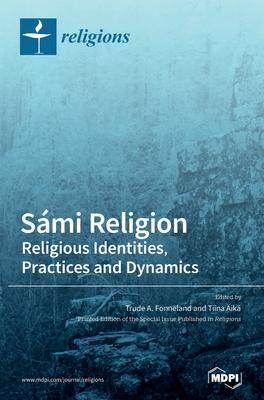"Smi Religion: Religious Identities, Practices, and Dynamics" explores expressions of ''Smi religion'' in contemporary cultures, the role it plays in identity politics and heritagization processes, and the ways the past and present are entangled. In recent years, attitudes towards ''Smi religion'' have changed both within religious, cultural, political, and educational contexts as a consequence of what can be called the ''Indigenous turn''. Contemporary, indigenous religion is approached as a something that adds value by a range of diverse actors and for a variety of reasons. In this Special Issue, we take account of emic categories and connections, focusing on which notions of ''Smi religion'' are used today by religious entrepreneurs and others who share and promote these types of spiritual beliefs, and how Smi religion is taking shape on a plenitude of arenas in contemporary society.

Smi Religion: Religious Identities, Practices and Dynamics
"Smi Religion: Religious Identities, Practices, and Dynamics" explores expressions of ''Smi religion'' in contemporary cultures, the role it plays in identity politics and heritagization processes, and the ways the past and present are entangled. In recent years, attitudes towards ''Smi religion'' have changed both within religious, cultural, political, and educational contexts as a consequence of what can be called the ''Indigenous turn''. Contemporary, indigenous religion is approached as a something that adds value by a range of diverse actors and for a variety of reasons. In this Special Issue, we take account of emic categories and connections, focusing on which notions of ''Smi religion'' are used today by religious entrepreneurs and others who share and promote these types of spiritual beliefs, and how Smi religion is taking shape on a plenitude of arenas in contemporary society.